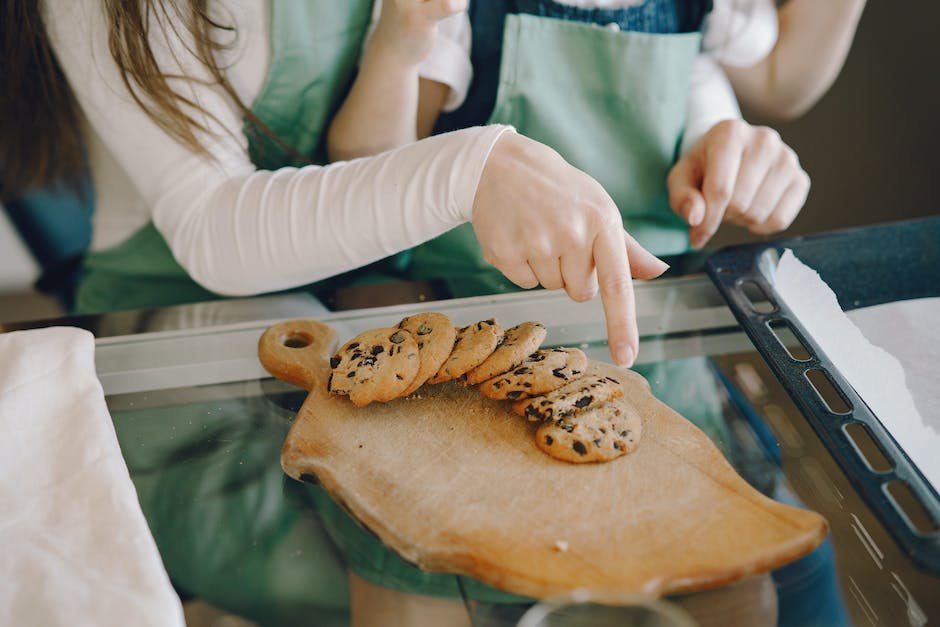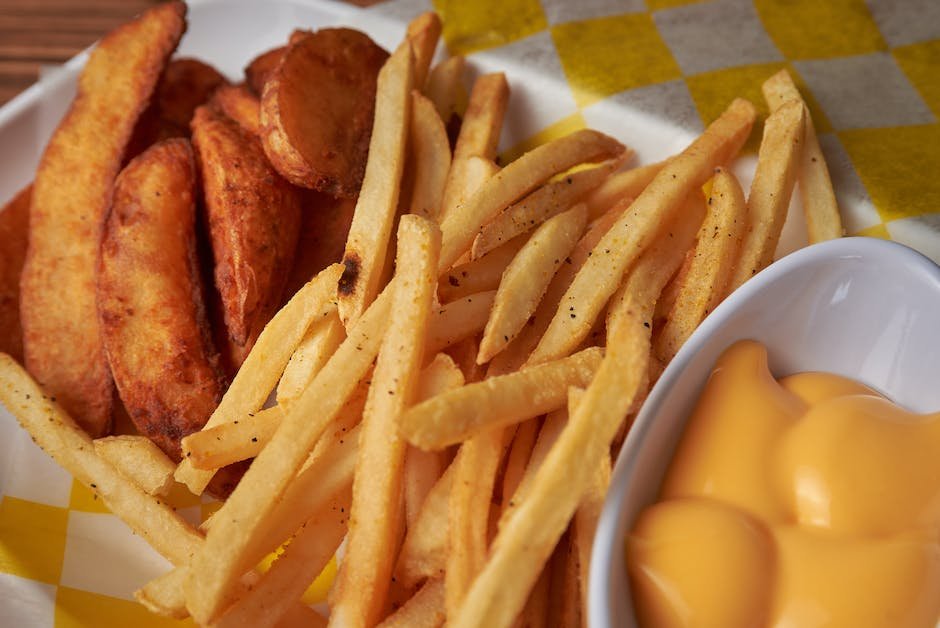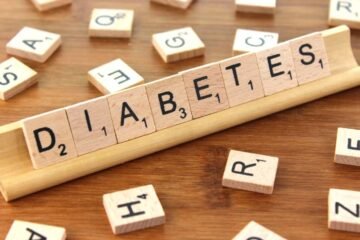When it comes to chips, most people agree that there is an optimal time limit after which they become too salty and/or overly buttery.
That being said, some are still curious about how long you can eat your fries before they make you sick. The truth is — there isn’t an exact number!
Most doctors will tell patients to stay away from salt for at least three days in order to minimize water retention and potential health issues such as heart failure or pulmonary edema. But other than that, everyone has different personal taste when it comes to food!
This article will talk about another important factor when it comes to eating chips — the fat content!
Different oils contain varying amounts of unsaturated fats so people may have different opinions on what is “too much” fat. You also should be aware of how many carbs each serving contains because one small bag of potato chips can add up quickly!
So, we decided to do a little research and figure out just how many grams of saturated fat, monounsaturated fat, and polyunsaturated fat there are in a typical one-ounce (28 g) serving of plain baked potato chips.
How long does it take for chips to digest?

The average person eats about 2,500 calories per day! That means that if you eat one potato chip every day, it will add up!
Most people know that eating too many carbs can make you feel hungry very quickly, but few realize just how fast food packages are engineered. They’re designed with limited digestion time to ensure that you don’t want to stop eating your meal too soon.
Can I eat chips after extraction?

The best way to handle this is to have your dentist tell you that you can eat them two hours after tooth removal! This is because it takes that long for your saliva to dry out the area, and ensuring adequate hydration is important to prevent infection.
However, if your mouth is still feeling very sensitive or raw, then limiting yourself to two hours may be too soon. Avoid eating crunchy foods like potato chips until your sensitivity has resolved completely. Also, make sure to drink plenty of water to help keep your oral health on track.
Do I need to refrigerate chips after extraction?
It depends on what kind of chip you have! French fries are sliced up potatoes, so they do not require cooling down or being stored in a refrigerator right away. They can be eaten immediately unless there is salty liquid leftover (salt was used when making them).
Cooked vegetables like carrots or broccoli also do not need to be cooled down or placed in the fridge, as they will continue to taste good and keep people wanting more of them for some time.
Salty snacks such as potato chips and corn chips are slightly harder to find this advice due to the salt content. The average one-bag serving contains around 2,000% water content, which means that most of the snack goes down your throat, but only for a few minutes until it is swallowed or licked off.
This does not matter if you are just eating one bag per person, but many people enjoy several bags at once, especially students who may eat lunch or breakfast together. If someone else is sharing their food with you, then letting those chips go warm may cause an awkward situation.
How many chips should I eat?
When it comes to eating chips, how much you enjoy them is up to you! That said, most people agree that one bag of regular sized chips (about 2-3 bags per person) is too much for an average day.
One large bag equals about 4–5% of your daily recommended value (DRV) of fat. DRVs are nutrition guidelines set by the Food and Nutrition Board at the Institute of Medicine – they’re not rules, but rather recommendations.
The food board recommends consuming 5% or less of calories from saturated fats each week. One small bag of chips goes way beyond this limit.
That being said, some people enjoy enough flavor flavonoids from the potatoes in the chips to make it worth it. If you’re someone who eats several bags every few days, start looking into potential reasons why this may be bad for you.
Potatoes contain vitamin B6 which helps keep blood glucose levels normal. Eating too much sugar can increase insulin production, so limiting carbs can help reduce risk of diabetes.
Also, even though one bag of potato chips may be just as high in fat as five bags, the size makes a difference. A two-ounce serving of baked fries has almost twice the amount of fat as a one-and-a-half ounce chip.
Should I soak chips in water?

An additional option is to fry the chips while keeping them separate from each other or as one large batch. Then, you can either serve these hot or warm by putting them into an appropriate amount of salt and olive oil and baking them at a low temperature.
This method helps preserve the integrity of the chip since they are not mixed together and there’s no liquid involved. You also have more control over how salty your chips are because you can add more salt later if necessary!
General tips: remember that your skin acts as a protective layer for your mouth so make sure to wash both thoroughly after eating snacks or meals. If you find something you like and it makes you feel poorly, chances are it isn’t good for you.
Disclaimer: The author of this article may be compensated through the sale of the products mentioned herein. Regardless, She/He holds no bias nor influence what so ever. All opinions expressed are honest and her own.
Should I bake chips?

If you have to make your own snacks, there are two main types of people who eat potato-based chips. You have those that cook their chips and then season them and fry them later, and you have those that buy pre-made salty foods and add salt to taste.
The first type is more expensive as they need to use energy to heat up a cooking facility, but they are very careful with how much salt they use to balance the flavor of the chip.
The second type is less expensive, but it is important to be aware of how many grams of salt you consume per serving. One thin slice of baked potato has around 1/2 teaspoon of table salt! That’s why some people recommend buying fresh potatoes and making your own chips.
You can also choose to grow your own spuds or start growing potatoes now for future self-care! 🙂 Either way, let us know if you give this recipe a try and tell us what you think in the comments below! We would love to hear from you.
What other ingredients are in chips?
Besides potatoes, most chip recipes call for another major ingredient – salt! This is what gives your chips their flavor and texture. However, too much of a good thing can be bad if you’re trying to reduce your blood pressure or maintain healthy kidney function.
Many varieties of potato chips include either plain white sugar or refined coconut sugar as an additional ingredient. These sugars do not nutritional value and may contribute to weight gain if eaten frequently.
Other frequent additives include baking soda and/or vinegar which help lower stomach acid and promote diarrhea, respectively. Healthier alternatives to these are celery powder and freshly squeezed lemon juice, both of which aid in digestion.
What should I serve with chips?
When it comes to what you can eat directly after extracting a tooth, most people agree that salty foods are your best bet.
Salty snacks like potato or tortilla chips are your best friend! Besides helping mitigate pain, salt also helps keep blood fluidized, which is important as you heal the bone and tissue surrounding the extracted tooth.
Another popular food choice is popcorn, but only if it’s salted. The unpopped kernels of corn contain trace amounts of potassium, so eating plain air-poasted popcorn may not be ideal until your saliva has enough of this mineral to help neutralize acid.
If you’re still hungry hours later, try some ginger or lemon juice mixed into water. Both of these ingredients make for good tasting drinks, and they both aid in alkalizing your body.


















